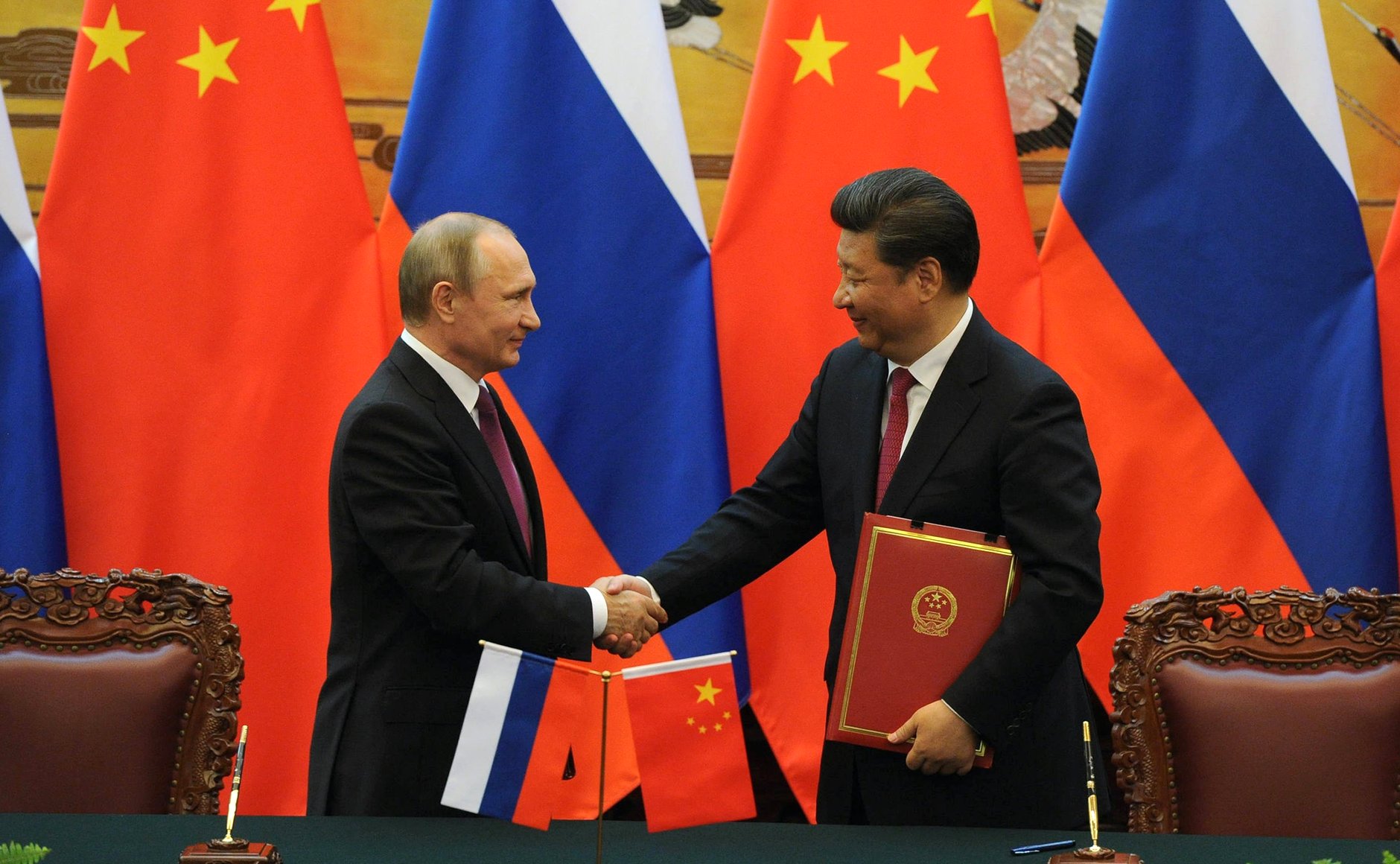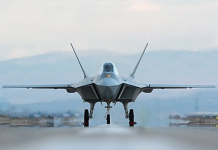
NATO’s top general has warned that China and Russia are forming a new axis of power.
In a statement to reporters, Tod Wolters, NATO’s Supreme Allied Commander Europe said growing co-operation between Beijing and Moscow “really does suggest an emergence of a partnership of convenience”.
The partnership potentially spans the globe ranging from the Arctic north to the Middle East and the Western Pacific.
“We are ever so vigilant with respect to that growing co-operation,” said Wolters while adding, such co-operation advanced mutual interests, “and that advancement could be to the detriment of Europe and corresponding and surrounding nations”.
NATO has accused Moscow of breaching international treaties with its continuing to develop new nuclear weapons. It has also blamed Moscow-based actors of engaging in disinformation campaigns cyber attacks aimed at destabilizing the West.
Beijing has also come under NATO’s radar over its running of modern concentration camps in Xinjiang as well as its belligerent territorial claims and ‘debt-trap’ diplomacy through its flagship belt and road initiative.
Both countries have shown great interest in the Arctic where retreating ice has exposed new resources including mineral reserves, oil, and gas.
“In the face of increasing aggressive activity in the high north from both Russia, which is an Arctic nation, and China, which claims to be a near-Arctic nation, we must maintain a favourable balance of power in this region for ourselves and for our allies,” said outgoing US Navy Secretary Kenneth Braithwaite last month.
China has even laid claims to a large portions of Moscow’s mineral-rich eastern provinces, including the Russian city of Vladivostok. However, Russian President Vladimir Putin and PLA’s Xi Jinping have cast aside their differences and have begun strengthening their economic, diplomatic, and military relations following Western countries imposed sanctions on Moscow in 2014 after it invaded the Crimean Peninsula and launched covert combat operations in eastern Ukraine.
In 2018, both countries conducted their largest ever joint military exercise with both contributing hundreds of thousands of troops, warships and aircraft.
In 2019, Xi and Putin collaborated over a gas pipeline project linking Siberia to northeast China.
In 2020, both countries gaain conducted joint military exercises in the western Pacific. They have also started co-operating in the Arctic.
“Without sustained American naval presence and partnerships in the Arctic region, peace and prosperity will be increasingly challenged by Russia and China, whose interests and values differ dramatically from ours,” reads a recent US Navy report.
Since 90% of global trade is carried out by sea, retreating Arctic ice can significantly shorten shipping routes from North America, to Asia and Europe.
“Left uncontested, incremental gains from increased aggression and malign activities could result in a fait accompli, with long-term strategic benefits for our competitors,” warns the Blue Arctic: A Strategic Blueprint report.
Russia-China alliance
According to Bryan Clark, a senior fellow from the Hudson Institute Center for Defence Concepts, the West needs to rethink how to contend with a Russia-China alliance, especially since the alliance goes much beyond just warships and warplanes.
“Unless (the Pentagon) begins to rethink its scenarios and rebalancing its forces, recent Chinese and Russian grey-zone successes in the East and South China Seas or Crimea could become the norm and the US military could find itself losing a battle of inches against patient competitors who are willing to play the long game,” said Clark.
He went on to add, the West’s worst-case scenarios include an invasion of Taiwan, “a lengthy blockade of Japan’s southwest islands or a sustained submarine threat off the US coast”.
Beijing and Moscow are well aware of the West’s concerns and have adapted their plans accordingly. Both “are methodically developing strategies and systems that circumvent the US military’s advantages and exploit its vulnerabilities by avoiding the types of situations for which US forces have prepared,” said Clark.
Both countries have expanded the battlefield to include the Infobahn.
“The Chinese and Russian militaries seek to make information and decision-making the main battlegrounds for future conflict … (to) direct forces to electronically or physically degrade an opponent’s information sources and communications while introducing false data that erodes the defender’s orientation and understanding,” said Clark.
CHANGING THE WORLD ORDER
Way back in 1997, the PLA’s chairman Jian Zemin and Russian President Boris Yeltsin vowed to “promote the multipolarisation of the world and the establishment of a new international order”. Chairman Xi and President Putin, their successors, are walking down that planned path and are in fact putting it into effect.
“Analysts in the West specifically doubted that Beijing and Moscow could overcome decades of mistrust and rivalry to co-operate against US efforts to maintain and shape the international order,” writes political scientists Professor Alexander Cooley and Associate Professor Daniel Nexon. “But the 1997 declaration now looks like a blueprint for how Beijing and Moscow have tried to reorder international politics in the last 20 years.”
Both countries have tried and have succeeded to a large extent at discrediting international organizations and Western institutions.
“At the same time, they are building an alternative order through new institutions and venues in which they wield greater influence and can de-emphasise human rights and civil liberties,” says Nexon. “The net result is the emergence of parallel structures of global governance that are dominated by authoritarian states and that compete with older, more liberal structures.”
“Beijing and Moscow appear to be successfully managing their alliance of convenience, defying predictions that they would be unable to tolerate each other’s international projects,” said Cooley and Nexon.
Both countries are competing to increase their foothold in international organizations, including non-government organizations, lending institutions, charities, and legal tribunals.
“Although the United States still enjoys military supremacy, that dimension of US dominance is especially ill-suited to deal with this global crisis and its ripple effects,” warned Cooley and Nexon.





